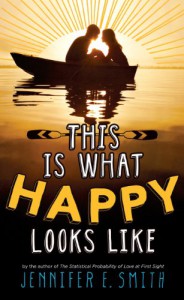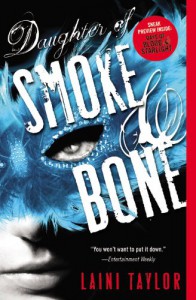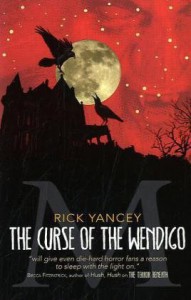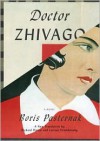
Disclaimer: I thought I had already posted this, but BookLikes isn't showing it on my shelf. I apologize if it's a duplicate.
I haven’t been this disappointed in a book for a long time. I will try not to spoil anything in the story with this review, but I have to say that given all of the five-star ratings and accolades it’s been getting, this book was surprisingly offensive and at times flat-out hypocritical. Since no one else has pointed out these aspects in the story, I am putting them in this review. Let me also say that I am not putting down anyone who enjoyed this story. These are just things that stuck out to me personally, and bothered me as I was reading.
The first two-hundred pages were particularly difficult to get through. One reason why this might be so is because of high expectations. This book was advertised as having “lyrical language,” and I found the prose to be riddled with romantic YA clichés and repetitive language. Where one sentence could suffice, the author uses two paragraphs. I know that many authors do this, and I’ve come across a few other books that have done it this year, but it’s still aggravating that for eighty percent of this book, information was being fed to me. Everything from Nastya’s traumatic event to Drew’s come-ons have a tendency to ramble, when shorter and direct dialogue would have sufficed.
Technique aside, my biggest issue of the book is this: there is a ton of slut-shaming in this story. And, for a story about a teenager “ruined” by an attack, I didn’t expect that. Since we stay mostly in Nastya’s perspective for the first part of the book, at first I assumed that Nastya was just being a judgmental teenager, calling other girls names to raise herself up. “Sarah. I smiled. I couldn’t help but appreciate the absolute perfection of the name; bland, common, and wholly unoriginal. Best of all, it means ‘princess’” (33). But then we got into Josh’s perspective, and he said the same thing. “Drew tends to go the vapid, cute, and popular route. He’s all about the path of least resistance when it comes to girls, and fortunately for him, that path seems to lead to almost every girl in school” (92). That’s an intense generalization, assuming that most teenage girls are vapid. (Additionally, from a grammatical standpoint, the idea of “popular” is selective; therefore, “almost every girl is school” can’t be.)
I understand that Nastya wears provocative clothing to get an abrasive response from people, but I thought that Millay was very condescending by stating that all girls who dress this way are “screaming for help” (155). Millay goes after Nastya’s apparel, saying that every time Nastya dresses this way she looks like a “Russian whore” (285). Since Nastya wears miniskirts and halter-tops, that description goes a little far. Since the story does take place is Florida, where the narrator frequently describes the heat, skirts shouldn’t be a sign of sexual misbehavior. Worse, Millay also turns on the other female characters. Sarah, who is given almost no dimension in the story at all, is constantly referred to as “Barbie” for her pink clothing (9-10).
Seriously, Millay? If miniskirts are whorish and pink is childish, what appropriate clothing choice is left for girls? Apparently it’s a very specific blue dress—described as “Grecian” by Millay—which Nastya wears because “it’s… normal” (288.) I disagree. Normal is wearing what you like wearing and what you’re comfortable wearing, whatever that may be. Teenage girls get enough flak from the media for their appearances, and they don’t need to get it from the novels they read too.
This wouldn’t bother me so much if the guys also got criticism for their appearance, but they don’t. Josh is barely given a physical description. Neither is Kevin or Ethan. Drew is referred to as “Ken” once, but in a positive light. On the other hand, Sarah, the “Barbie” of the two, is repeatedly put down as accusatory, and Tierney is only given any praise once she is put in as a romantic foil for another character. Until then, both girls are described as bitchy, and everything from the clothes they wear to the make-up on their faces is criticized. “She’s blond, like [Drew], though not exactly; her hair is lighter, like she spent the whole summer in the sun. She’s attractive in the most obvious way possible, wearing a pink, well-filled-out halter top and carrying an obsessively-coordinated, pink Coach purse” (9). Since the male characters are given such leeway, and are shown such growth, I don’t understand why so many of the female characters were written off as being airheaded, physical beings. I understand that high school is a rough time for a lot of people, and that the way girls interact can be misconstrued as manipulative and cruel, but to assume that their outer appearance reflects their real-life depth is a mistake and shouldn’t be reinforced in a story. Clothing choices aren’t windows to the soul, and they aren’t something only applicable to girls.
One thing I will say for this story is that the romantic relationship kept clear of any rom-com tropes. Nastya and her romantic interest remain interesting as the story progresses. Their relationship matured and felt real. I wish some of the other relationships in the story showed that. The familial relationships struck me as a little detached, and I wish I could have seen the family dynamic more in action, rather than being told by the author how things were. (This was another part of the novel where I felt like I was being fed information.)
Again, I don’t mean for this review to sound like a rant, though I am still upset by some of the content. I don’t mean to offend anybody with my opinion, and I mean no disrespect to the author.









 1
1
















